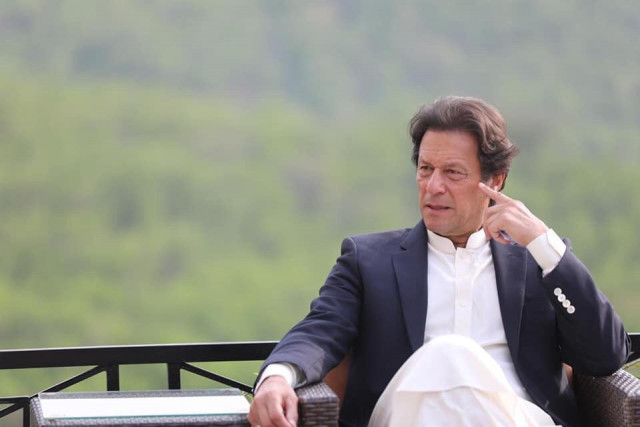PM Imran moves SC in foreign funding matter
Challenges IHC’s Dec 4 order declaring Akbar S Babar a party member; questions ECP’s jurisdiction

PM Imran Khan. PHOTO: PTI OFFICIAL
The top polls supervisory body has been hearing since 2014 a petition filed by a disgruntled PTI member, Akbar S Babar, who accused the party leadership of receiving funds from foreign sources.
The case has already reached a critical juncture at the ECP, but the PTI on Saturday through its chairman, Prime Minister Imran Khan, filed a petition against the Islamabad High Court’s December 4, 2019 order declaring Akbar S Babar a part of the ruling party.
In the petition, filed by Attorney General for Pakistan Anwar Mansoor Khan’s daughter Umaimah
Anwar Khan, the PTI has also challenged the ECP’s jurisdiction as well as Babar’s locus standi.
Senior lawyer Shah Khawar is contesting the PTI’s main foreign funding case before the ECP.
Foreign funding case adjourned till January 9
A senior party official told The Express Tribune that Khawar had advised the party against challenging the IHC order in the apex court.
“Khawar believes the PTI has a very strong case and it should be contested on merit. He told the
party that there is no need to create unnecessary hype against the commission in the media,” the official said while speaking on the condition of anonymity.
“The counsel had told the party that the apex court in Hanif Abbasi case judgment has already declared that anyone can raise objection to funding of any political party [and therefore, it is pointless to challenge the IHC order declaring Babar a party member],” the official said.
However, contrary to his legal opinion, the PTI decided to approach the apex court stating that the
party has been consistently expressing concerns about maintainability of the complaint filed by Babar and the manner of the proceedings before the ECP.
It says Babar’s complaint against the PTI was driven by mala fide intentions and personal vendetta. The petition states that the IHC order to declare Babar a party member “is a bad law”.
The ECP doesn’t have authority or jurisdiction to adjudicate, declare or pass a judgment in the
matter which is needed to be decided by a court of law. The ECP is acting in violation of Article 175 of Constitution assuming jurisdiction of a court which is not established by law, it adds.
The PTI says Babar had already withdrawn his membership and his name doesn’t appear as a member of the party. Likewise, he didn't pay any membership fee.
The petition says the ECP also wrongly rejected the PTI’s objection and declared Babar a member of the party.
Hanif Abbasi case
The Supreme Court has already discussed in detail the question of foreign funding in its 2017 judgment on a petition filed by PML-N leader Hanif Abbasi, who had sought disqualification of Imran Khan.
The apex court bench, headed by then chief justice Saqib Nisar, had made a distinction between a ‘foreign aided’ party and ‘prohibited funding’ and referred the case on Dec 16, 2017 to the ECP for a probe.
The judgment noted that it is the duty of the ECP to scrutinise accounts of political parties on the touchstone of Article 6(3) of the PPO read in the light of Article 17(3) of the Constitution.
Chaudhry Faisal Hussain advocate, who had appeared on behalf of the PTI in this case, also said it is not a foreign funding case but a prohibited funding case and both have different penal consequences.
He said other major political parties also face similar allegations of getting funds through prohibited sources; therefore, the ECP must examine their accounts as well.



















COMMENTS
Comments are moderated and generally will be posted if they are on-topic and not abusive.
For more information, please see our Comments FAQ